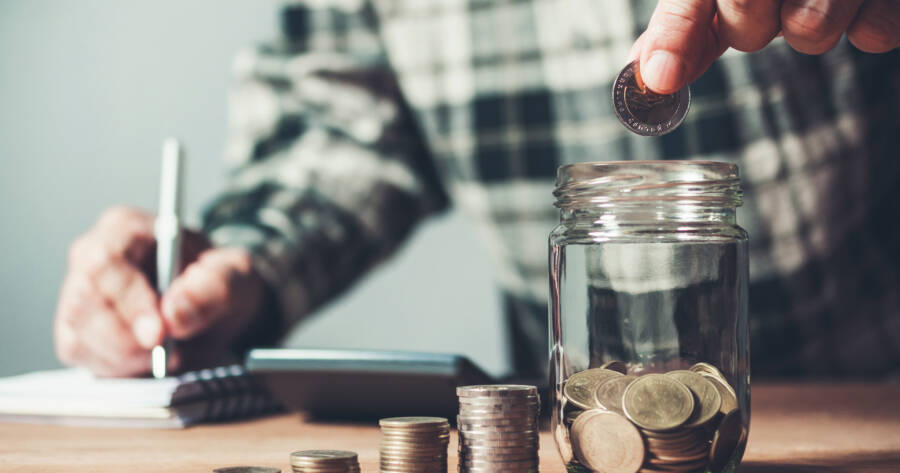Economic challenges can place enormous pressure on personal finances, especially when job security feels uncertain and everyday costs continue to rise. Many individuals find themselves relying on savings to bridge financial gaps, even when they’d prefer to preserve those funds for true emergencies or long-term goals. By adopting practical strategies, adjusting spending habits, and using available resources wisely, it becomes possible to protect savings while navigating difficult periods more confidently.
Understanding the Pressure on Personal Savings
Though experts say the economic crisis is over, there are still many people struggling to stay afloat. Job security is still shaky. Wages are stagnant. For those of us with savings still sitting in the bank, dipping into those savings is often the only way to keep from going under. However, using savings is something most of us would rather not do.
On one hand, we saved that money for a rainy-day emergency. As we continue to see cut hours, layoffs, and stock markets randomly rising and falling, that proverbial rainy day has been hovering over for quite some time now. On the other hand, we worry that the cloud of financial uncertainty is not quite ready to move on. We want to try and hold on to as much of our savings as we can — preferably for retirement, if we can manage it.
How To Financially Fight Back
If you are currently in a position that requires you to draw from your nest egg to get by, here are a few tips to help you maintain your savings until we start to see a more stable financial future.
- Pay down your debt, but not all at once. The eventual goal of becoming debt-free isn’t a pipe dream. However, you still need to make sure you have enough to get by every month. Continue making your monthly payments without dipping into savings unless absolutely necessary. If you’ve lost your job and are currently getting by on your savings alone, switch to minimum monthly payments and keep searching for a new source of income.
- Establish your budget. Living frugally is a lot easier than it sounds, especially if you set a specific budget allotment for each of the bare necessities.
- Shop on discount days. A good way to save money is to actually look at your local grocery store’s flyer and only buy things (that you need) if they’re on sale. Stock up on certain items that don’t expire if the price is right, and don’t forget to use coupons whenever they apply.
- Keep your money in savings as long as possible, so it can continue to accrue interest each month. That interest may come in handy down the line when you’re finally forced to start dipping into your savings.
- Avoid banks that require a monthly fee to maintain and hold your funds. There are hundreds of banks in America that offer free checking and savings accounts. Or look into a Credit Union. Don’t pay excessive banking fees if you don’t have to.
- Use credit wisely. For many of us, we rely heavily on our credit cards to get by. However, maxing out those credit cards is a surefire way to find yourself on the downturn when it comes time to start paying them off. Not only will you face higher monthly payments and interest rates, but you’ll accumulate more debt during a time you should be reserving your resources.
- Make savings automatic. Most banks will give you the choice to do automated transfers between your checking and savings accounts. This will give you the opportunity to choose when, how much, and where to transfer money. You might also have the option to split your direct deposit paycheck between your checking and savings accounts. This is a simple way to save because you don’t have to think about it. It just happens. It also reduces the temptation to spend money lavishly.
- Keep building your emergency fund, if you can. Even adding as little as five or ten dollars a week can help you be prepared if an emergency were to arise.
Staying Resilient Through Financial Uncertainty
Hard economic periods test both discipline and emotional endurance. Still, small, consistent choices can create meaningful stability. Adjusting spending, prioritizing essentials, and avoiding unnecessary fees help protect your financial foundation even when income fluctuates. By gradually strengthening habits and keeping savings intact as long as possible, you build resilience and give yourself room to recover when circumstances improve.
Moving Forward with Confidence
Economic recovery may take time to reach households on a personal level, making thoughtful financial management more important than ever. By using credit responsibly, minimizing expenses, and preserving savings where possible, you create a buffer against future uncertainty.
Each mindful decision supports long-term financial health and positions you to benefit when the economy becomes more stable. With steady habits and intentional planning, it’s possible to weather hard times and emerge with greater financial confidence.








